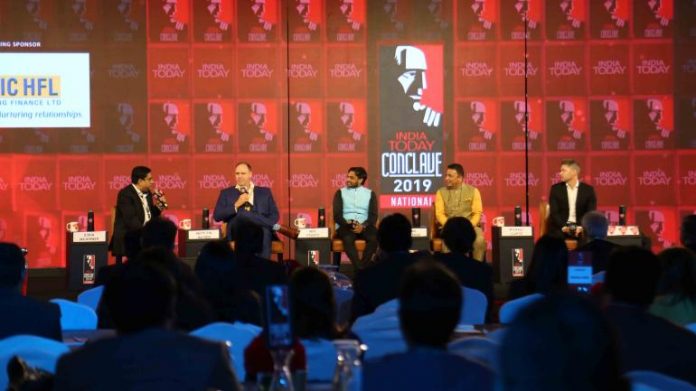
Lost Voices
One of the major casualties of the pandemic are conferences, summits and conclaves, most notably the annual India Today Conclave which has been postponed. Regulars at the Conclave, including invitees, were looking forward to hear from a range of speakers, including Dr Ian Lipkin, the virologist who is helping China fight the coronavirus. Other lost voices include the Union finance minister, Nirmala Sitharaman; Evan Spiegel, co-founder and CEO of Snap.Inc; S Jaishankar, Union foreign minister who was scheduled to speak on rebalancing India’s foreign policy; economists Arvind Subramanian and SK Subramaniam, on their analysis of the Indian economy; author Ruchir Sharma on de-globalisation; policy expert Navroz K Dubash; and corporate-activist Shloka Nath on why India is so vulnerable to climate change; and erudite Congressman Shashi Tharoor. Also missed will be the usual line-up of celebrities and Bollywood stars. The Conclave was due to start last weekend.
Home Page
The coronavirus pandemic has caused huge disruptions in offices and businesses across the country, and media houses are not immune. Despite the unique processes required in a media organisation which entails close coordination between editorial, design, copy desk and printing—or filing and uploading in the case of digital operations—many media outlets are asking staff to work from home.
According to a survey by digital media platform Newslaundry, The Indian Express, India Today magazine, and The Times of India group are some of the larger media organisations that have implemented work from home measures. TV channels are following suit despite the unceasing flood of news about the pandemic, live coverage and the specialised equipment required for broadcasts. Regular programmes that require elaborate staff have been shuttered for now as some senior staffers work from home, and even digital platforms like Scroll and The Quint have joined in the work-from-home campaign. Newslaundry says reporters and editors will work from “wherever is convenient” and India Legal too has also introduced work-from-home protocols for its senior editorial staff.
Red Faces
There are a lot of red faces in the higher echelons of the Dainik Bhaskar group, the largest circulated daily newspaper in India. The Hindi language newspaper has been issued a showcause notice by the Press Council of India for publishing an interview of Sanna Marin, the prime minister of Finland, on its digital arm, DB Post, which embarrassingly turned out to be fake. The interview was published on International Women’s Day and the dateline was Helsinki. However, the interview came to the notice of the Finnish prime minister’s office which clarified that no such interview had taken place.
The communications director of the Finland government said: “We would have known if anyone in Helsinki had interviewed the prime minister.” The Finnish government even took up the matter with the Indian embassy in Helsinki.
DG Post has since taken down the interview from its site and an unofficial statement says it was sent by a freelancer. The Finnish government said that the text was lifted from an earlier interview of the Finnish prime minister given to German TV channel ZDF. For the DB group, the blow to its hard-earned credibility is serious.
Lead picture: Vishal Ghavri

